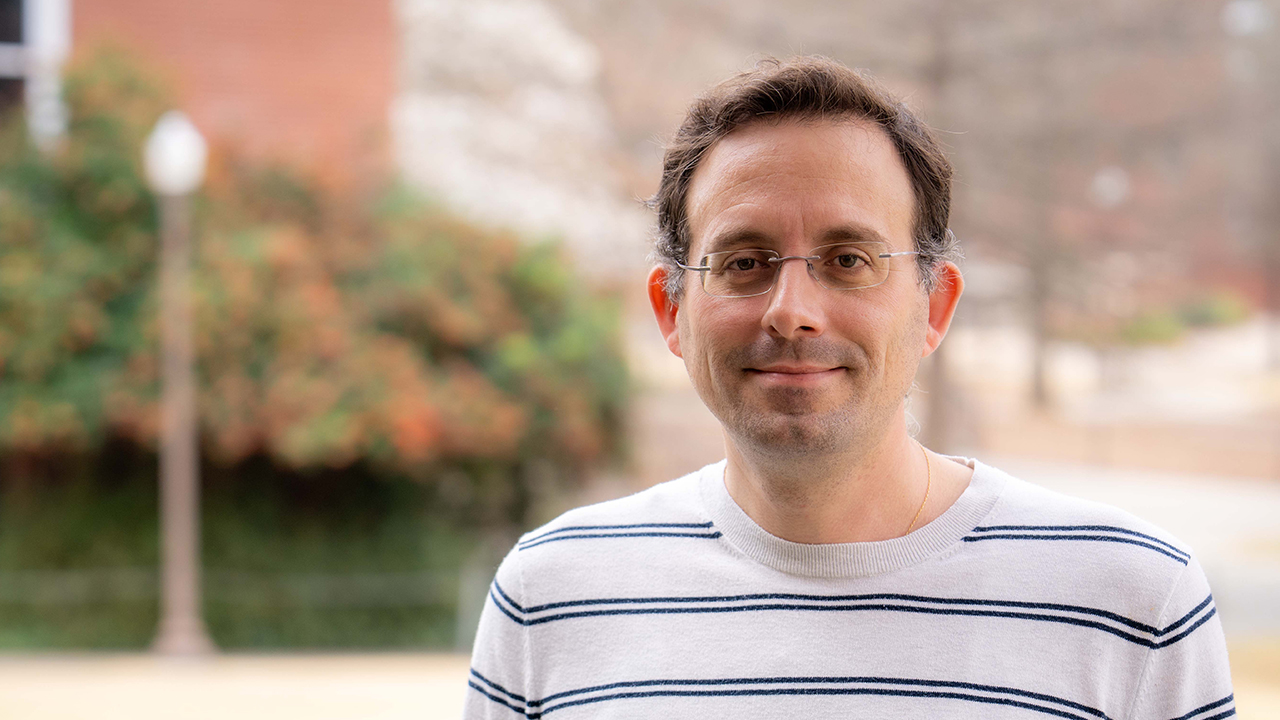content body

Auburn University's Evangelos Miliordos has established himself as one of the most productive and impactful researchers in the field of computational chemistry.
Recently honored with the Young Faculty Scholar Award, Miliordos' work continues to push the boundaries of scientific understanding, making significant contributions to both Auburn's College of Sciences and Mathematics (COSAM) and the global scientific community.
Doug Goodwin, chair of the Department of Chemistry and Biochemistry, emphasized Miliordos' remarkable productivity and influence.
"Evangelos has been our most productive faculty member, in terms of publication since he started. And it's not just about quantity — his research appears in some of the most prestigious journals in chemistry and science overall," Goodwin said.
Miliordos' work is regularly published in high-impact journals, such as the "Journal of the American Chemical Society" and "Science," highlighting the exceptional quality of his research.
As a computational chemist, Miliordos focuses on solving complex chemical problems through advanced computational methods. His research is particularly essential in areas where the interpretation of experimental findings is complex or uncertain. One of his primary areas of study involves electron-rich transition metal complexes, which play a crucial role in high-difficulty chemical reactions.
Because these complexes are often unstable and difficult to analyze experimentally, computational approaches provide invaluable insights into their behavior. Miliordos' work enables scientists to better understand and manipulate these reactions, facilitating the use of greenhouse gases as raw materials for commodity chemicals and driving advancements in energy production and industrial processes.
Miliordos' journey to Auburn was one marked by dedication and excellence. Originally from Greece, he earned his doctorate at the University of Athens before moving to the United States.
Miliordoss postdoctoral work took him to Michigan State University, the Pacific Northwest National Laboratory and the University of Delaware, where he refined his expertise in computational chemistry. In 2016, he joined Auburn University and quickly made his mark.
Reflecting on his time at Auburn, Miliordos expressed deep appreciation for the opportunities and support he has received.
"I feel very grateful to Auburn," he said. "They provided me with the resources, motivated students, and collegial environment I needed to succeed. Auburn is a great place to start your career."
Miliordos' research is driven by a passion for addressing some of the most pressing questions in modern chemistry.
One of Miliordos' major projects involves computational catalysis, particularly the conversion of methane to methanol. This process has significant implications for energy sustainability, as methane is abundant but underutilized. By developing molecular catalysts to efficiently convert methane into methanol, his work could lead to cleaner and more efficient energy solutions.
In addition to his work on computational catalysis, Miliordos is also developing materials with diffuse electrons, which have unique properties that make them useful in redox chemistry and quantum computing. His research aims to harness these materials to improve energy storage, enhance chemical reactions and advance next-generation computing technologies.
Through his groundbreaking research and dedication to scientific discovery, Miliordos continues to elevate Auburn's reputation in the field of computational chemistry. His contributions not only enhance fundamental chemical understanding, but also open doors to innovative applications that could transform industries. As he continues his work, there is no doubt that his influence on the field will only grow stronger.




